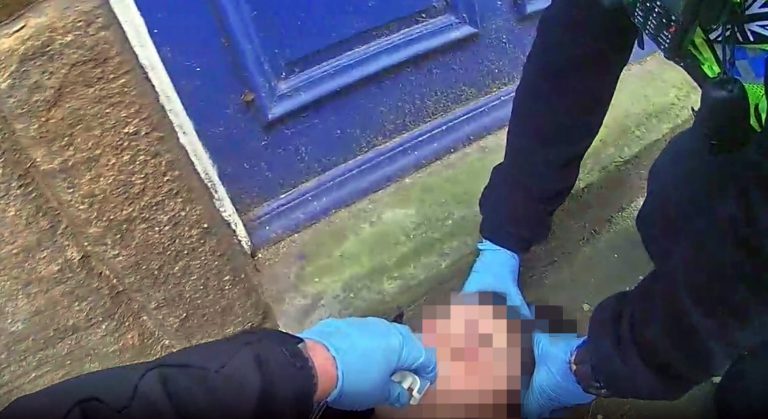How to know if you’re eligible for PIP
People can get PIP if they have a long-term health condition or impairment that means they have difficulty getting around or doing everyday tasks. It needs to have lasted for at least three months, and they need to think it will last at least nine more months.
Claimants have to be over the age of 16 and under state pension age, which is currently 66. Louise Rubin, head of policy at the disability charity Scope, stresses that you do not need to have a diagnosis to claim PIP. The full assessment criteria can be found on the government’s website.
What is the DWP assessment criteria for PIP?
There are two sections to PIP: the daily living component and the mobility component. You’ll be assessed on your ability to do everyday tasks like preparing food, and your difficulties moving around.
You can be paid either the daily living component or the mobility component on its own, or both components at the same time. Each component is paid at two different levels: a standard rate and an enhanced rate.
The rate you are paid depends on whether your ability to carry out daily living or mobility activities is limited or severely limited. This is tested under the PIP assessment.
“The PIP assessment looks at how your condition or impairment impacts your life,” Rubin adds. “You don’t need to have a particular type of condition or impairment to get PIP. For example, if you have a mental health condition that makes it hard to go out and about, you might meet some of the mobility criteria.”
Advertising helps fund Big Issue’s mission to end poverty
According to Disability Rights UK, you score points when you are not able to complete a task safely, to an acceptable standard, repeatedly, and in a reasonable time (no more than twice as long as it would take most people).
To be entitled to the standard rate of the daily living component, you need to score at least eight points under the 10 daily living activity headings. To be entitled to the enhanced rate, you need to score at least 12 points.
You don’t need to meet every criterion to get some financial support. If you’re not sure, you can take an online PIP test like this one from Benefit and Work to check if you are eligible.
What evidence do I need when applying for PIP? And how do I get it?
Make sure you have the following before you get in contact with the DWP:
- Your contact details
- Your date of birth
- National insurance number if you have one
- Your bank or building society account number and sort code
- Your doctor or health worker’s name
- Dates and addresses for any time you’ve spent in a care home or hospital
- Dates for any time you spent abroad for more than four weeks at a time, and the countries you visited.
Jamie Thunder, former policy and public affairs officer at Z2K, says: “Any supporting evidence you can submit alongside your application – from your medical records to a letter from a consultant – can help the DWP to make the right decision.”
Gill Spoor, a Big Issue reader with experience going through the DWP disability benefits process, and helping others, adds it is advisable to get a copy of your medical records so you are fully prepared beforehand if possible.
Advertising helps fund Big Issue’s mission to end poverty
You have a legal right to get a copy of the information the NHS holds about you. You should ask your GP or the health setting that provided your care or treatment for a copy.
NHS England will also be able to provide you with a copy of the coded and statistical information from any of your hospital attendances. You can ask for this through a subject access request by filling out this form.
If you have problems with walking or other mobility problems, you may be able to get a Blue Badge from your local authority to enable you to park your car near shops and other places you wish to visit. This can be used as evidence of mobility problems.
“Evidence could be a letter from your GP outlining why driving is difficult for you, or even a diary entry where you’ve written about how you need help to wash your hair,” Rubin says.
If your condition varies from day to day, it’s a good idea to keep a diary to provide a picture of what your abilities are like over time.
“There is a range of health professionals you can ask to provide evidence, this includes your physiotherapist, social worker, counsellor, doctor or GP,” Rubin continues. “Make sure medical professionals supplying evidence send it to you and not the DWP, so you can make sure you’re happy with it.”
Advertising helps fund Big Issue’s mission to end poverty
Spoor adds: “If a person has physical disability, it is also worth their while seeking an appointment for an occupational therapist via the GP and also by self referring to social services.
“Regardless as to diagnosis, PIP is not about your condition, it is about how your condition impacts upon you. The diagnosis doesn’t do this – but an occupational therapist is trained to identify how you are limited and also to prescribe aids that can assist you in your daily living needs.”
Your support changes lives. Find out how you can help us help more people by signing up for a subscription
How do I apply for PIP?
Step one: contact the DWP
Your first step is to get in touch with the DWP. You can do this in a variety of different ways including by phone, post, textphone or Relay UK, a video relay service.
If you need someone to support you, a relative, carer or friend can make the call for you. You must be present so that you can confirm that the person supporting you has your permission to make the call.
Advertising helps fund Big Issue’s mission to end poverty
They will ask a number of questions including about your identity, condition (to see if you need any additional support to go through the process) and how you want to be paid. The call should take about 15 minutes.
Tell the agent if you are nearing the end of your life so that they can fast track your claim and send you the right form.
At the end of the telephone call, the agent will read out a declaration and ask you to agree to it. Your agreement confirms that the information you have given is true and accurate.
Step two: fill out the form
The DWP will then send through a form where you detail how your condition affects your daily life. You have a month to fill out the form and send it back with any evidence that illustrates what you’re saying in the form.
“It’s really important to send this form back on time, otherwise your claim will end, and you’ll have to start over again,” Rubin says. “You should send in your form even if you haven’t gathered all your evidence yet, because you can submit evidence retrospectively. Always make sure to tell the DWP if you’re waiting for evidence by sending a letter with your form or calling the PIP enquiry line.
Advertising helps fund Big Issue’s mission to end poverty
“If you can’t fill in the form in time and have a good reason, for example if you become too ill to complete the form, tell the DWP and they may give you more time.”
Make copies of your forms and evidence before you send it. The DWP can’t send your documents back, so it could be helpful to remind you of what to say during your assessment, or in case your form gets lost in the post.
You should also get proof of postage. This could come in handy if your form gets lost and you need to ask for a deadline extension from the DWP.
For more advice on how to fill out your form, visit the Scope website or see Disability Rights UK’s guide.
Thunder advises people to take their time on the form. “The forms are very long and can look daunting,” he says. “It’s important to put in as much detail as you can, however, so give yourself time to make sure you’ve fully explained how your health or disability affects you.”
Rubin’s golden rule is: the more information you give the DWP, the better. That means writing about all the ways your condition impacts the activities outlined in the assessment criteria. Try to use the language the DWP uses on their assessment criteria in your answers.
Advertising helps fund Big Issue’s mission to end poverty
Spoor says: “It is crucial to write in a way that matches these criteria where it is applicable to your circumstances and cross reference with the evidence you have gathered.”
Include everything you find difficult and impossible to do, even if it’s not every day. You should attempt to explain every aspect of a barrier you face and how it affects your life, even if it seems obvious to you. You should give as much detail as possible, and give several examples, especially for activities that are difficult or unsafe for you to complete like driving or preparing food.
Disability Rights UK has a full, extensive guide to filling out the DWP disability benefits application form. Starting on page 12, it goes through all the questions with what you should include in your answers and how best to meet the criteria.
If you run out of space on the application form, write the extra information on a separate sheet and attach it to your form. Be sure to include your name, national insurance number and the relevant question numbers on any additional sheets.
Spoor adds: “Do not be restricted to the size of the form. I always write them on a word document and then use the form to ‘signpost’ to the word document.”
What will happen at the PIP assessment?
After you’ve submitted your form, you will have an assessment which can be face to face, but most are done by phone or video call. If you need adjustments to attend your assessment, such as a sign language interpreter, make sure to tell the DWP as soon as you’re given your assessment date.
Advertising helps fund Big Issue’s mission to end poverty
“Preparing for your assessment is key. You should be ready to speak about how your condition impacts your ability to do day-to-day activities,” Rubin says. “You want to maximise your chances of getting support, so explain everything fully, even if you’ve already written it in your form.
“Don’t assume your assessor will understand or have any prior knowledge of your condition, assessors often aren’t specialists in your condition.”
Assessors do something called ‘informal observations’, according to Rubin. This means they observe you and use this as evidence in their report. If you walk around the assessment room unaided, they may take this as evidence that you can move around.
If you’ve got a condition that fluctuates, you need to demonstrate that your condition impacts you at least half of the time to meet the criteria.
“Be honest – including with yourself,” Thunder adds. “Sometimes people find it hard or upsetting to think about the impact their health or disability has on their daily life, or to talk about it to an assessor. But DWP will only decide based on what it knows – so think about a typical day, not just a good day.”
Can I record the DWP disability benefits assessment?
Yes, you have a legal right to record the DWP disability benefits assessment. Scope advises you to ask the assessment provider to record your assessment or record it yourself. This can be indispensable if you need to challenge your decision later down the line.
Advertising helps fund Big Issue’s mission to end poverty
“When the time comes for the appointment, make sure that the call is recorded,” a disabled person with experience of applying for the process adds. “State on the form that you wish for the call to be recorded and phone ahead to make sure that they are aware.
“Refuse to go ahead with the interview if they fail to record, that will not count against you if they have failed to accommodate your request. This is your right and will ensure the assessor records accurate information.”
Can I bring a friend or family member to the PIP assessment?
If it’s helpful, you can bring someone like a friend or family member to the assessment with you. Tell the assessment centre if you plan to have someone with you. This could be good for moral support if you are anxious, or for making sure someone else is aware of what is going on in the assessment so they can help with any appeals processes later down the line.
If you need extra support, the Scope helpline can offer help and advice on benefits on 0808 800 3333 or helpline@scope.org.uk. For textphone, dial 18001 then 0808 800 3333. If you’re not sure about the forms, or you think the DWP’s decision is wrong, use Advicelocal to find free, independent advice.
Disability Rights UK has an extensive guide to PIP applications. Turn2Us advice finder can also help you find local organisations that give advice. The DWP directed the Big Issue to its guide to PIP on the government website.
Do you have a story to tell or opinions to share about this? Get in touch and tell us more. Big Issue exists to give homeless and marginalised people the opportunity to earn an income. To support our work buy a copy of the magazine or get the app from the App Store or Google Play.
Advertising helps fund Big Issue’s mission to end poverty
Get the latest news and insight into how the Big Issue magazine is made by signing up for the Inside Big Issue newsletter










